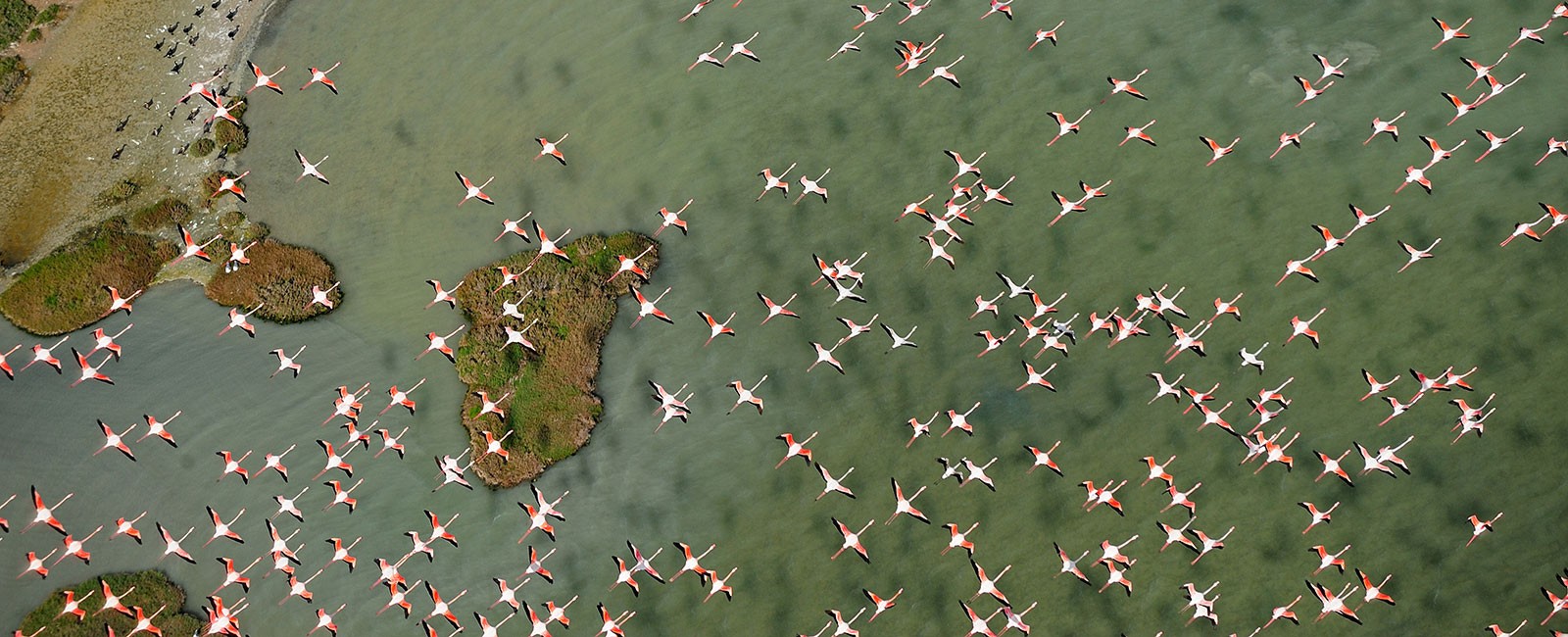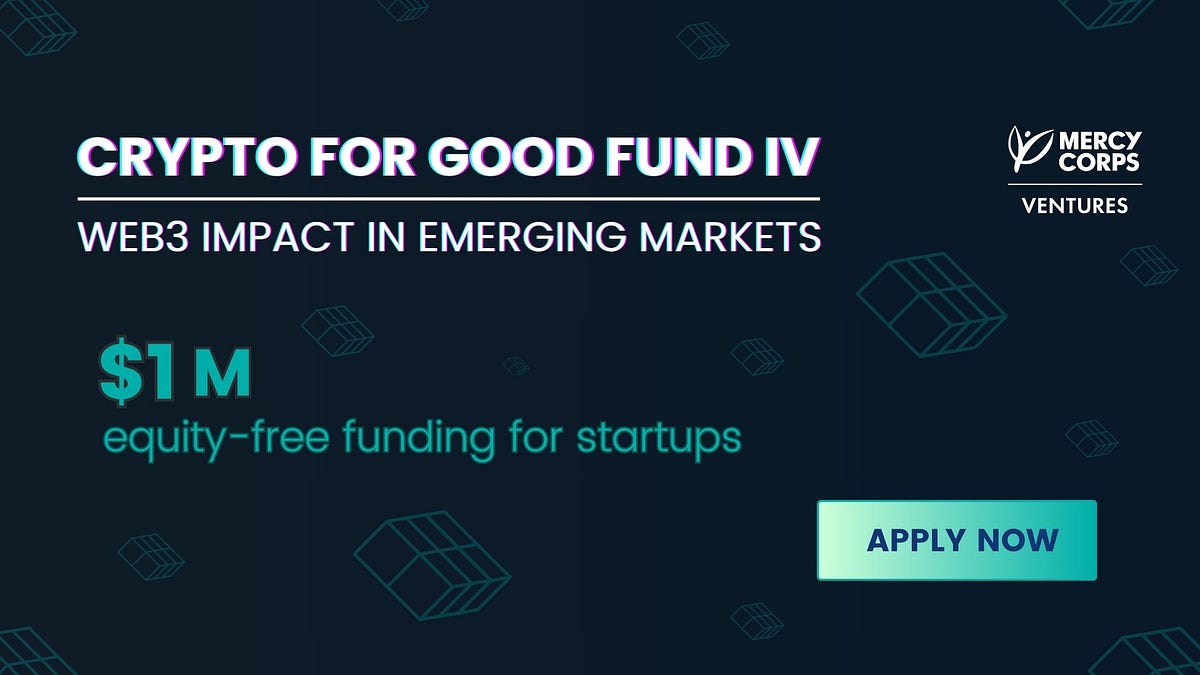Browse
Science, Technology And Innovation
CFAs: Spencer Foundation Vision Grants Program
Deadline: Feb 11, 2025
Donor: Spencer Foundation
Grant Type: Grant
Grant Size: $10,000 to $100,000
Countries/Regions: All Countries
Area: Education, Innovation, Research, Youth & Adolescents
The Spencer Foundation is inviting applications for its Vision Grants Program to support the field in producing research that disrupts long-standing inequities toward more just and equitable systems.
For more information, visit https://www.spencer.org/grant_types/vision-grants
Premium Link: https://grants.fundsforngospremium.com/opportunity/op/cfas-spencer-foundation-vision-grants-program
By:
Baboki Gaolaolwe-Major
Thursday, Dec 12, 2024
EDUCATION
+1
No Preview Available
Leave a comment
Nominations open for 20th Biodiversity Conservation Awards
Deadline: Apr 01, 2025
Donor: BBVA Foundation
Grant Type: Awards, Prizes and Challenges
Grant Size: $100,000 to $500,000
Countries/Regions: All Countries
Area: Endangered Species, Habitat, Protection, Biodiversity, Conservation, Environment, Science
Nominations are now open for the 20th Biodiversity Conservation Awards to publicly recognize the work of conservation organizations, institutions and agencies that develop environmental conservation policies or functions, as well as that of communication professionals who contribute to protecting natural heritage.
For more information, visit https://www.biophilia-fbbva.es/premios/xx-premios-conservacion-biodiversidad/
Premium Link: https://grants.fundsforngospremium.com/opportunity/op/nominations-open-for-20th-biodiversity-conservation-awards
By:
Baboki Gaolaolwe-Major
Thursday, Dec 12, 2024
SCIENCE, TECHNOLOGY AND INNOVATION

No Preview Available
Leave a comment
Exciting Opportunity for Students from the Global South!
The Max Planck Institute for Solid State Research in Germany leads the charge for diversity, inclusion, and equality in science. To address the underrepresentation of young scientists from the Global South, they’ve launched the second edition of their Comp@ss Program!
🔬 This fully-funded internship provides undergraduate students in condensed matter science with the chance to:
Conduct research at one of the world’s top institutes.
Work with partner groups at the University of Stuttgart.
🌟 Special preference for students from least-income countries.
📅 Deadline: January 26, 2025💻 More details & application: https://www.fkf.mpg.de/compass
Spread the word and encourage eligible students to apply for this incredible opportunity! Let's support efforts to create a more inclusive global scientific community.
By:
Baboki Gaolaolwe-Major
Tuesday, Dec 10, 2024
YOUTH EMPOWERMENT
+2

No Preview Available
Leave a comment
Entries open for Space4Youth Competition 2025
Area: Science, Technology, Youth & Adolescents
The United Nations Office for Outer Space Affairs (UNOOSA) and the Space Generation Advisory Council (SGAC) are thrilled to announce the sixth edition of the Space4Youth Competition.
For more information, visit https://spacegeneration.org/space4youth-competition-2025
Premium Link: https://grants.fundsforngospremium.com/opportunity/op/entries-open-for-space4youth-competition-2025
By:
Baboki Gaolaolwe-Major
Saturday, Dec 7, 2024
SCIENCE, TECHNOLOGY AND INNOVATION
+1

No Preview Available
Leave a comment
Grants for advance Innovative Solutions for Maternal, Newborn and Child Health
Deadline: Jan 31, 2025
Donor: Grand Challenges Nigeria
Grant Type: Grant
Grant Size: $10,000 to $100,000
Countries/Regions: Nigeria
Area: Children, Family, Family Health, Health, Innovation
The Grand Challenges Nigeria is inviting grant applications for Maternal & Child Health to identify and support innovative, scalable ideas and interventions that leverage local contexts to address critical challenges in maternal, newborn, and child health, ultimately prioritizing human health and development.
For more information, visit https://scienceforafrica.foundation/media-center/grand-challenges-nigeria-launch-funding-call-maternal-child-health
Premium Link: https://grants.fundsforngospremium.com/opportunity/op/grand-challenges-nigeria-funding-call-for-maternal-child-health
By:
Baboki Gaolaolwe-Major
Sunday, Nov 24, 2024
SCIENCE, TECHNOLOGY AND INNOVATION
+1
No Preview Available
Leave a comment
Call for Applications: Women in Innovation Fund (WiNFUND)
Deadline: Dec 13, 2024
Donor: Health Innovation Exchange
Grant Type: Grant
Grant Size: Not Available
Countries/Regions: Egypt, Ghana, Kenya, Nigeria, South Africa, Tanzania, Uganda
Area: Business & Industry, Entrepreneurship, Climate Change, Health, Health care, Innovation, Women & Gender
The Women in Innovation Fund (WiNFUND), co-founded by Reckitt, HIEx (Health Innovation Exchange), and the Kofi Annan Foundation, is excited to announce the launch of its new cycle, inviting female health innovators across Africa to apply.
For more information, visit https://hiex.ch/winfund-call-2425
Premium Link: https://grants.fundsforngospremium.com/opportunity/op/call-for-applications-women-in-innovation-fund-winfund
By:
Baboki Gaolaolwe-Major
Sunday, Nov 24, 2024
WATER, ENERGY, AND THE ENVIRONMENT
+2
No Preview Available
Leave a comment
CFAs: Evidence-Informed Policy Making Grants Program
Deadline: Feb 19, 2025
Donor: The British Academy
Grant Type: Grant
Grant Size: $100,000 to $500,000
Countries/Regions: Afghanistan, Angola, Bangladesh, Benin, Brazil, Burkina Faso, Burundi, Cambodia, Central African Republic, Chad, Comoros, Congo DR, Djibouti, Egypt, Eritrea, Ethiopia, Gambia, Guinea, Guinea-Bissau, Haiti, Indonesia, Jordan, Kenya, Kiribati, Laos, Lesotho, Liberia, Madagascar, Malawi, Malaysia, Mali, Mauritania, Mozambique, Burma(Myanmar), Nepal, Niger, Philippines, Rwanda, Sao Tome And Principe, Senegal, Sierra Leone, Solomon Islands, Somalia, South Africa, Sudan, Tanzania, Thailand, East Timor (Timor-Leste), Togo, Turkey, Tuvalu, Uganda, United Kingdom, Viet Nam, Yemen, Zambia, South Sudan
Area: Agriculture Food & Nutrition, Urban Development, Biodiversity, Climate Change, Conservation, Environment, Health, Technology, Water
The British Academy is inviting proposals related to evidence-informed policy-making in Brazil, Egypt, Indonesia, Jordan, Kenya, Malaysia, Philippines, South Africa, Turkey, Thailand, Vietnam and/or Least Developed Countries.
For more information, visit https://www.thebritishacademy.ac.uk/funding/evidence-informed-policymaking-grants/
Premium Link: https://grants.fundsforngospremium.com/opportunity/op/cfas-evidenceinformed-policy-making-grants-program
By:
Baboki Gaolaolwe-Major
Sunday, Nov 24, 2024
AGRI-FOOD SYSTEMS
+2
No Preview Available
Leave a comment
CFAs: Logan Science Journalism Program
Deadline: Jan 15, 2025
Donor: Marine Biological Laboratory
Grant Type: Events
Grant Size: Not Available
Countries/Regions: All Countries
Area: Environment, Journalism, Media, Research, Science
The Logan Science Journalism Program offers science journalists, writers, editors, and broadcast journalists a chance to forget about story deadlines and immerse themselves in basic biomedical or environmental research.
For more information, visit https://www.mbl.edu/education/logan-science-journalism-program
Premium Link: https://grants.fundsforngospremium.com/opportunity/op/cfas-logan-science-journalism-program
By:
Baboki Gaolaolwe-Major
Sunday, Nov 24, 2024
WATER, ENERGY, AND THE ENVIRONMENT
+1
No Preview Available
Leave a comment
Call for Proposals: GEF Small Grants Programme in Malawi
Deadline: Dec 06, 2024
Donor: United Nations Development Programme (UNDP)
Grant Type: Grant
Grant Size: $10,000 to $100,000
Countries/Regions: Malawi
Area: Agriculture Food & Nutrition, Fishing, Endangered Species, Capacity Building, Biodiversity, Climate Change, Energy, Environment, Innovation, Livelihood
The United Nations Development Programme (UNDP) is seeking proposals for the GEF Small Grants Programme to support small-scale projects for activities that conserve and restore the environment while enhancing people’s wellbeing and livelihoods, taking into consideration of gender, vulnerability, and equality concerns.
For more information, visit https://www.undp.org/malawi/publications/call-project-proposals-gef-small-grants-programme
Premium Link: https://grants.fundsforngospremium.com/opportunity/op/call-for-proposals-gef-small-grants-programme-in-malawi
By:
Baboki Gaolaolwe-Major
Sunday, Nov 24, 2024
AGRI-FOOD SYSTEMS
+2
No Preview Available
Leave a comment
Applications open for Motorola Solutions Foundation Grant Program
Deadline: Jan 23, 2025
Donor: Motorola Solutions Foundation
Grant Type: Grant
Grant Size: $10,000 to $100,000
Countries/Regions: All Countries
Area: Disability, Information Technology, Leadership, LGBTQ, Women & Gender
Applications are now open for the Motorola Solutions Foundation Grant Program.
For more information, visit https://www.motorolasolutions.com/en_us/about/motorola-solutions-foundation/annual-grants.html
Premium Link: https://grants.fundsforngospremium.com/opportunity/op/applications-open-for-motorola-solutions-foundation-grant-program
By:
Baboki Gaolaolwe-Major
Sunday, Nov 24, 2024
SCIENCE, TECHNOLOGY AND INNOVATION
+1

No Preview Available
Leave a comment
Open Call: Hello CleanTech 3.0 Programme
Deadline: Dec 10, 2024
Donor: EIT InnoEnergy
Grant Type: Events
Grant Size: Not Available
Countries/Regions: All Countries
Area: Business & Industry, Startups, Energy, Environment, Innovation
Applications are now open for Hello CleanTech 3.0, a programme designed to accelerate green innovation.
For more information, visit https://www.hellocleantech.com/
Premium Link: https://grants.fundsforngospremium.com/opportunity/op/open-call-hello-cleantech-30-programme
By:
Baboki Gaolaolwe-Major
Sunday, Nov 24, 2024
SCIENCE, TECHNOLOGY AND INNOVATION
No Preview Available
Leave a comment
Mercy Corps Ventures: Crypto for Good Fund (4th Round)
Deadline: Dec 20, 2024
Donor: Mercy Corps Ventures
Grant Type: Grant
Grant Size: $10,000 to $100,000
Countries/Regions: Afghanistan, Albania, Algeria, Angola, Antigua and Barbuda, Argentina, Aruba, Bahamas, Bahrain, Bangladesh, Barbados, Belarus, Benin, Bhutan, Bolivia, Bosnia And Herzegovina, Botswana, Brazil, Brunei, Bulgaria, Burkina Faso, Burundi, Cambodia, Cameroon, Cape Verde, Cayman Islands, Central African Republic, Chad, Chile, Colombia, Comoros, Congo (Brazzaville), Congo DR, Costa Rica, Cote DIvoire (Ivory Coast), Croatia, Cuba, Czech Republic, Djibouti, Dominica, Dominican Republic, Ecuador, Egypt, El Salvador, Equatorial Guinea, Eritrea, Ethiopia, Fiji, French Polynesia, Gabon, Gambia, Ghana, Grenada, Guadeloupe, Guatemala, Guinea, Guinea-Bissau, Haiti, Honduras, Hungary, India, Indonesia, Iran, Iraq, Israel, Jamaica, Jordan, Kenya, Kiribati, Kuwait, Laos, Lebanon, Lesotho, Liberia, Libya, Macedonia, Madagascar, Malawi, Malaysia, Maldives, Mali, Marshall Islands, Martinique, Mauritania, Mauritius, Mayotte, Mexico, Micronesia Federated States Of, Moldova Republic Of, Morocco, Mozambique, Burma(Myanmar), Namibia, Nauru, Nepal, Netherlands Antilles, New Caledonia, New Zealand, Nicaragua, Niger, Nigeria, Northern Mariana Islands, Oman, Pakistan, Palau, Palestinian Territories, Panama, Paraguay, Peru, Philippines, Poland, Puerto Rico, Qatar, Reunion, Romania, Russia, Rwanda, Saint Helena, Saint Kitts And Nevis, Saint Lucia, Saint Vincent And The Grenadines, Sao Tome And Principe, Saudi Arabia, Senegal, Seychelles, Sierra Leone, Singapore, Slovak Republic, Solomon Islands, Somalia, South Africa, Sri Lanka, Sudan, Swaziland, Syria, Tanzania, Thailand, Togo, Tonga, Trinidad And Tobago, Tunisia, Turks And Caicos Islands, Tuvalu, Uganda, Ukraine, United Arab Emirates, Uruguay, Vanuatu, Venezuela, Viet Nam, United States Virgin Islands, Wallis And Futuna, Western Sahara, Yemen, Zambia, Zimbabwe, Montenegro, Saint Barthélemy, Serbia, Kosovo, South Sudan , Saint Martin (French Part), Sint Maarten (Dutch Part)
Area: Business & Industry, Startups, Climate Change, Information Technology, Innovation, Livelihood
The Mercy Corps Ventures has excited to announce its fourth round of the Crypto for Good Fund.
For more information, visit https://medium.com/mercy-corps-social-venture-fund/announcing-the-crypto-for-good-fund-iv-ee1cd9387dfd
Premium Link: https://grants.fundsforngospremium.com/opportunity/op/Mercy-Corps-Ventures:-crypto-for-good-fund-4th-round
By:
Baboki Gaolaolwe-Major
Sunday, Nov 24, 2024
WATER, ENERGY, AND THE ENVIRONMENT
+1

No Preview Available

Leave a comment